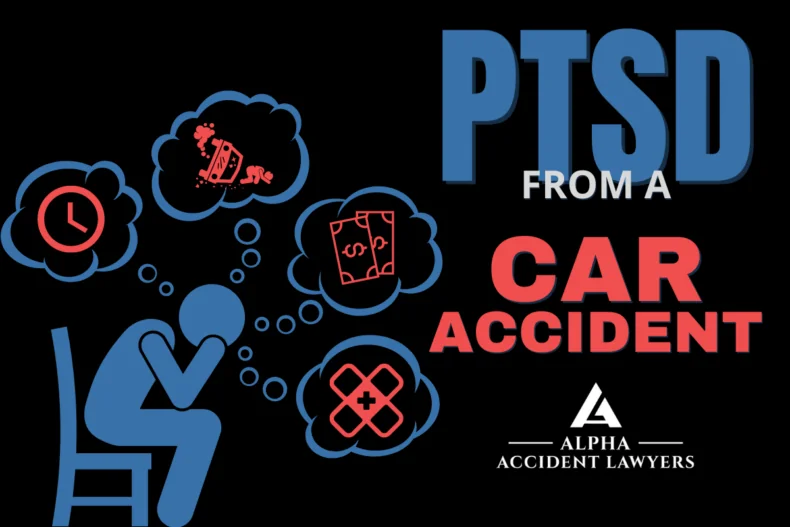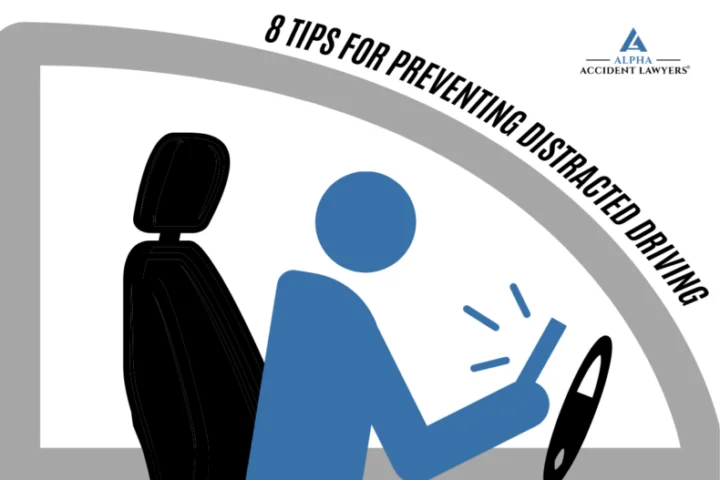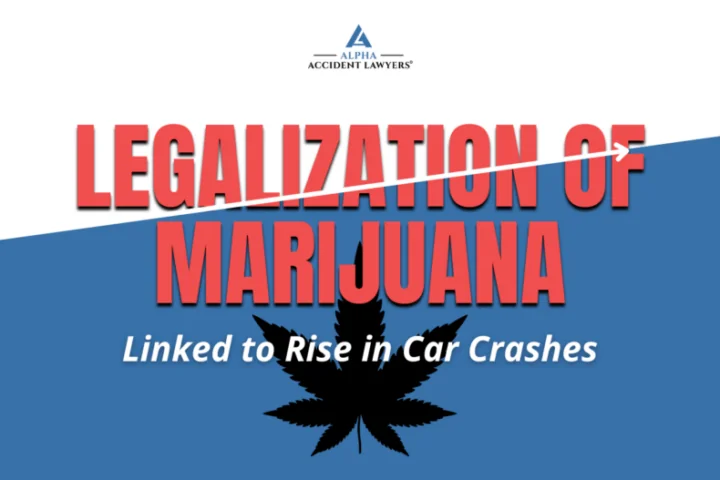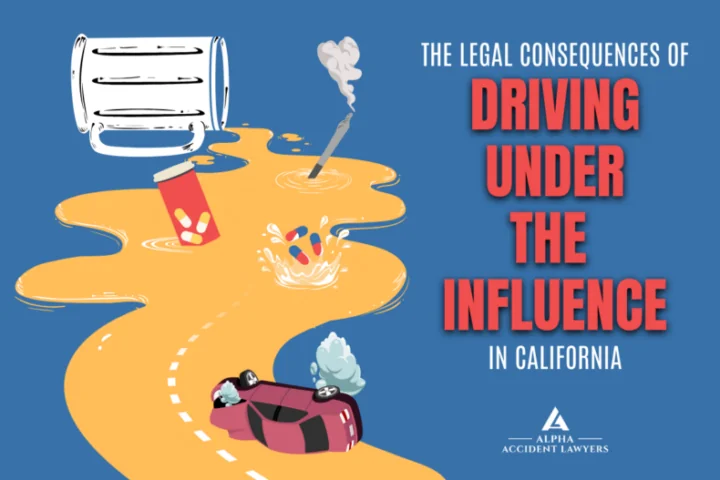PTSD From Car Accident: What You Need To Know
Post-traumatic stress disorder (PTSD) is a mental health disorder that can develop after a person experiences or witnesses a traumatic event, such as a serious car accident. PTSD can impact a person’s ability to function in their everyday life. If you are experiencing symptoms of PTSD after an auto accident, it’s crucial to seek help from a mental health professional and consult with a personal injury lawyer.
Car accidents are a leading cause of post-traumatic stress disorder in the United States. According to The National Institutes of Health, about 25-33% of car accident survivors suffer from PTSD for at least 30 days after the traumatic event. Read on to learn more about posttraumatic stress disorder and how it can impact a car accident claim.
Six Common Symptoms of PTSD After a Car Accident
PTSD symptoms typically begin within 3 months of the traumatic event and can have a substantial impact on a person’s daily life, including their relationships and work. Symptoms of PTSD vary, and a victim may not realize they developed PTSD after a car crash. Here are some common symptoms of PTSD:
Intrusive Thoughts, Feelings, and Memories
After a traumatic incident, victims may suffer from persistent, intrusive thoughts, feelings, and memories related to their trauma. Intrusive thoughts are unwanted thoughts that appear in our minds. Intrusive memories and thoughts seem to come out of nowhere and are often unpleasant, causing distress for victims.
Reliving the Accident and Flashbacks
People who experience PTSD from a car accident may have reoccurring dreams about the accident. Flashbacks can occur without warning and certain situations can trigger flashbacks such as seeing the same car models as those involved in the accident, similar weather, or driving near where the accident took place.
Behavior Changes
People suffering from PTSD may become easily irritated or agitated after the accident. They may get upset by situations and circumstances that previously did not trigger the person. Avoidant behavior is also common after a traumatic accident. Car accident victims may avoid places, people, sounds, or smells that remind them of the motor vehicle collision. More behavior changes can include:
- Impulsiveness
- Aggressive behaviors
- Self-destructive behaviors
- Irritability
- Easily startled
- Find it difficult to concentrate
- Extreme alertness, also known as hypervigilance
Extreme Mood Changes
Car accident survivors experiencing PTSD symptoms may have dramatic shifts in attitude and feelings. People struggling with PTSD may have difficulty regulating their emotions or experiencing happiness.
Difficulty Concentrating
After a car accident, victims that develop PTSD may have difficulty concentrating or may become easily distracted. A person can be distractable because of intrusive and traumatic memories, and internal reactions to triggers and flashbacks. Inattention is often a factor of hypervigilance, for example, if a person is constantly scanning the environment for signs of a threat.
Sleep Disturbances
Motor vehicle accident survivors may suffer from sleep disturbances such as lack of sleep, interrupted sleep, nightmares, and insomnia. Insomnia is defined as a sleep disorder that can last for a few days, weeks, or months. Long-term insomnia may occur 3 or more nights a week and last for a month or more.
Diagnosis and Treatment of PTSD
To be diagnosed with PTSD, a person must have experienced the following symptoms for at least 1 month:
- At least one re-experiencing symptom – This includes flashbacks, reoccurring memories or dreams, and experiencing physical signs of stress.
- At least one avoidance symptom – These symptoms of PTSD can include avoiding places, objects, and people that are reminders of the traumatic event. It can also involve avoiding or suppressing feelings related to the car accident.
- At least two arousal and reactivity symptoms – This can include increased irritability, sleep disorders, aggressive outbursts, and engaging in reckless behavior.
- At least two cognition and mood symptoms – Cognitive and mood symptoms of PTSD can include feelings of social isolation, negative thoughts about oneself or others, losing interest in hobbies and activities, and having difficulty feeling happiness or satisfaction.
Seek Help from a Mental Health Professional
If you are experiencing symptoms of post-traumatic stress disorder, especially if your symptoms persist after 6 to 8 weeks, it’s best to consult with a medical professional. Motor vehicle accidents are traumatic and it is common for victims to suffer from PTSD after a car.
Some forms of PTSD treatment can include the following:
Prolonged Exposure (PE) Therapy
Prolonged exposure therapy is a type of cognitive behavioral therapy designed for treating PTSD. The goal of this PTSD treatment is to help victims gradually re-engage with life and strengthen their ability to recognize and distinguish safety from danger.
Eye Movement Desensitization and Reprocessing (EMDR)
EMDR is a form of psychotherapy that involves focusing on the traumatic event while simultaneously experiencing certain eye movements or bilateral stimulation.
Cognitive Processing Therapy (CPT)
CPT is a cognitive therapy that has been effective in reducing PTSD symptoms. This kind of therapy helps people learn how to challenge and modify negative and unhelpful beliefs related to traumatic events they have experienced.
How Long Does PTSD Last?
PTSD symptoms vary in severity and may be resolved within weeks or can develop over time into chronic PTSD. Some people suffering from PTSD after a car may recover within months, while others may experience symptoms that last a year or longer.
Claiming Compensation for PTSD From a Car Accident
Car accident survivors can seek compensation for post-traumatic stress disorder (PTSD) after a car accident. Injured victims can also pursue damages including lost wages, medical bills, mental health services, and pain and suffering. The value of your car accident claim will depend on factors such as the extent of your injuries and damages, the willingness of the insurance company to offer a fair settlement, and the legal representation you have.
It’s essential to visit a medical professional and ensure your physical and mental injuries receive proper medical care and treatment. Generally, you must have received a professional diagnosis of PTSD to claim PTSD in a claim. Your personal injury lawyer will build a compelling case on your behalf and prove how the car accident caused or was a factor in your developing PTSD.
Our Car Accident Lawyers Can Help You Recover Compensation
Post-traumatic stress disorder can make it difficult for many victims to perform everyday tasks and functions. The lingering effects of a car accident can cause mental distress and take an emotional toll. If you are suffering from PTSD after a car accident, it’s important to get properly diagnosed and consult with a personal injury attorney.
At Alpha Accident Lawyers we are dedicated to helping injured victims recover compensation for their serious injuries including their physical injuries, mental injuries, and emotional injuries. Call our personal injury law firm today to schedule a free consultation.
START YOUR FREE CONSULTATION





